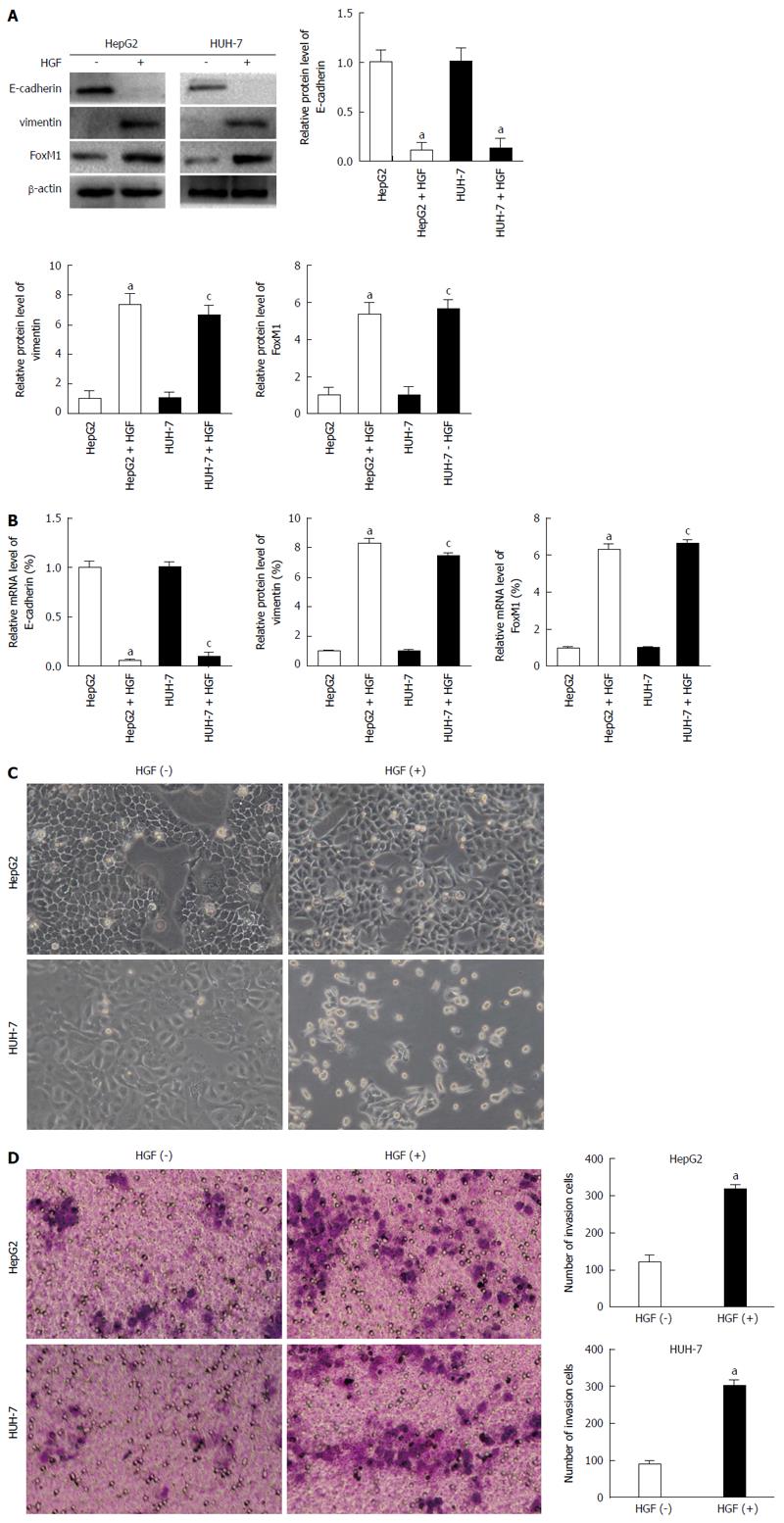Copyright
©The Author(s) 2015.
World J Gastroenterol. Jan 7, 2015; 21(1): 196-213
Published online Jan 7, 2015. doi: 10.3748/wjg.v21.i1.196
Published online Jan 7, 2015. doi: 10.3748/wjg.v21.i1.196
Figure 3 Hepatocyte growth factor up-regulates the expression of forkhead box protein M1, and induces epithelial-mesenchymal transition.
A and B: HepG2 and HUH-7 (low metastatic potential) cells were treated with phosphate-buffered saline (PBS) or hepatocyte growth factor (HGF) for 48 h. The protein and mRNA levels of forkhead box protein M1 (FoxM1), E-cadherin and vimentin were measured by Western blot and quantitative real-time polymerase chain reaction. A densitometric analysis was performed, and the protein/mRNA levels of FoxM1, E-cadherin and vimentin in negative control cells were set to 100% (aP < 0.05 vs HepG2 control; cP < 0.05 vs HUH-7 control). Glyceraldehyde-3-phospate dehydrogenase mRNA was used for normalization; C: HepG2 and HUH-7 cells were treated with PBS or HGF for 48 h, and the typical morphology changes was measured using a light microscope; D: HepG2 and HUH-7 cells were treated with PBS or HGF for 48 h, and the invasion changes was measured by Transwell assay (aP < 0.05 vs control).
- Citation: Meng FD, Wei JC, Qu K, Wang ZX, Wu QF, Tai MH, Liu HC, Zhang RY, Liu C. FoxM1 overexpression promotes epithelial-mesenchymal transition and metastasis of hepatocellular carcinoma. World J Gastroenterol 2015; 21(1): 196-213
- URL: https://www.wjgnet.com/1007-9327/full/v21/i1/196.htm
- DOI: https://dx.doi.org/10.3748/wjg.v21.i1.196









